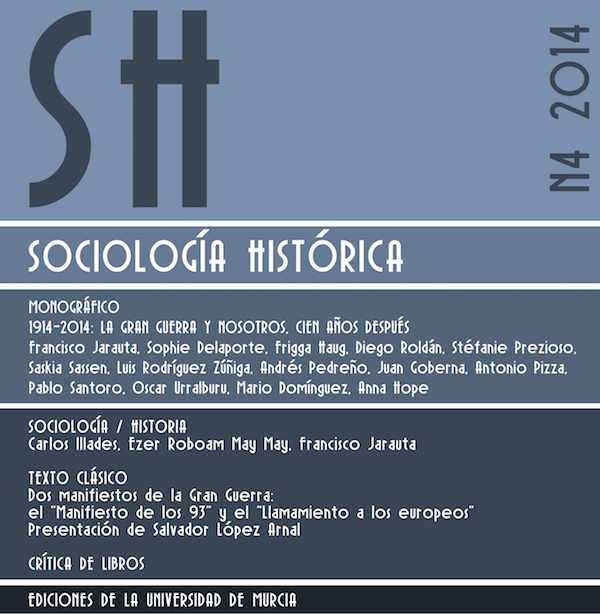“Rise, Dead of Verdun!” A cultural history of Spiritualism after the Great War
Abstract
In the final sequence of J'Accuse , the legendary anti-war film filmed by Abel Gance in 1918-19, the deranged hero addresses an extension of battlefield tombs: "Morts de Verdun, levez-vous!" . Y "with the earthy figure and their orbits full of stars", the fallen soldiers answer to his call: an army of ghosts emerge from the ground and spreads in every direction. But the return of the dead after World War I was, in a certain sense, literal, and not just for the thousands of maimed and muted veterans who shakily resumed the civil existence. The end of the war led – especially in the United Kingdom but also in other European countries – to a resurgence of spiritualism and its practices of communication with the dead. This article, within a broader reflection on the interpretation of "unorthodox" socio-historical materials that question the neat division between truth and fiction, presents and analyzes this historical phenomenon as a response to the intensity of war trauma. The centrality assigned in this period to spirit photography is particularly interesting and leads us to reflect on the role of photographs in some processes of mourning.Downloads
-
Abstract939
-
PDF (Español (España))354
Las obras que se publican en esta revista están sujetas a los siguientes términos:
1. El Servicio de Publicaciones de la Universidad de Murcia (la editorial) conserva los derechos patrimoniales (copyright) de las obras publicadas, y favorece y permite la reutilización de las mismas bajo la licencia de uso indicada en el punto 2.
2. Las obras se publican en la edición electrónica de la revista bajo una licencia Creative Commons Reconocimiento-NoComercial-SinObraDerivada 4.0 España (texto legal). Se pueden copiar, usar, difundir, transmitir y exponer públicamente, siempre que: i) se cite la autoría y la fuente original de su publicación (revista, editorial y URL de la obra); ii) no se usen para fines comerciales; iii) se mencione la existencia y especificaciones de esta licencia de uso.
3. Condiciones de auto-archivo. Se permite y se anima a los autores a difundir electrónicamente las versiones pre-print (versión antes de ser evaluada) y/o post-print (versión evaluada y aceptada para su publicación) de sus obras antes de su publicación, ya que favorece su circulación y difusión más temprana y con ello un posible aumento en su citación y alcance entre la comunidad académica. Color RoMEO: verde.










